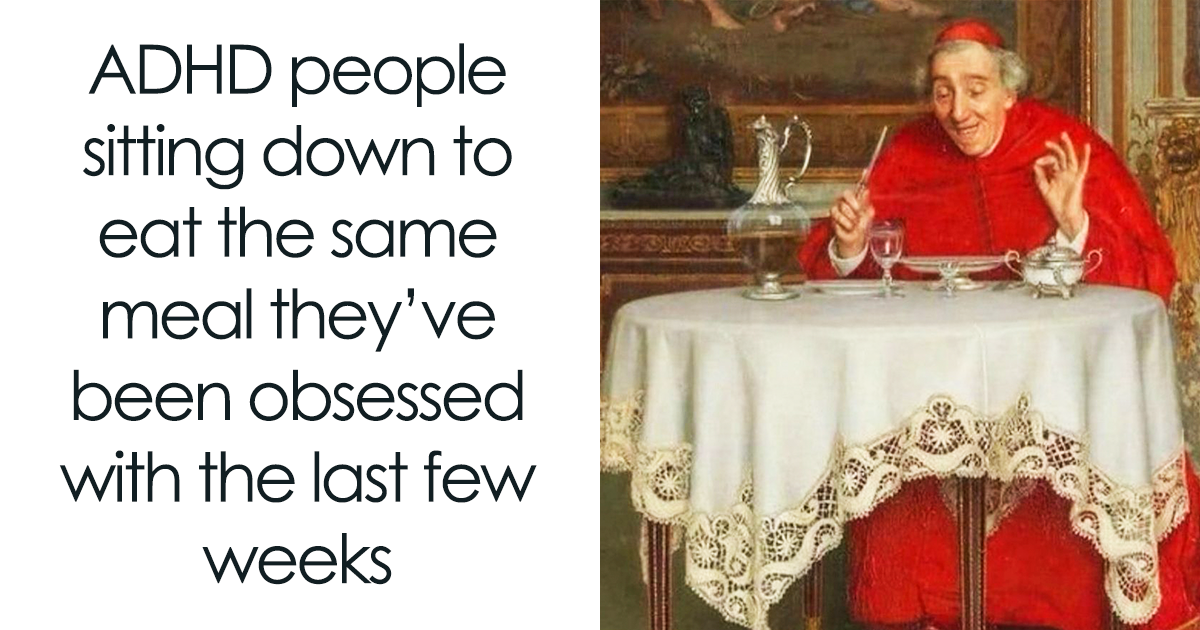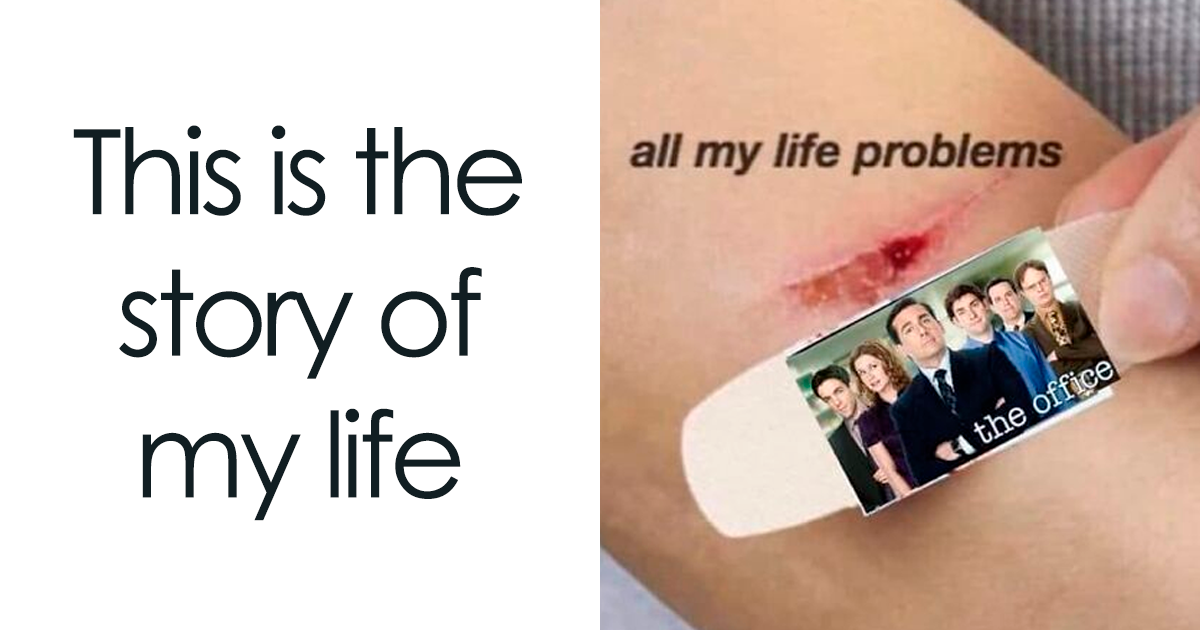[ad_1]
More than 366 million adults worldwide have ADHD. While an estimated 6 million children have been diagnosed in America alone. ADHD is a neuro-developmental disorder. And it’s no laughing matter. If not managed properly, it can impact your daily life, and lead to long-term struggles with school, work or relationships.
That said, laughter can sometimes be good medicine. Which is maybe why Insta page ADHD Meme Therapy has managed to clock up over 1.3 million followers. The Iranian behind the account describes himself as “your friendly neighborhood Meme Therapist”. As someone who has been diagnosed with both ADHD and mild depression, he knows a thing or two about mental health struggles. Try your best to focus, and keep scrolling for Bored Panda‘s best picks from the page.
#1
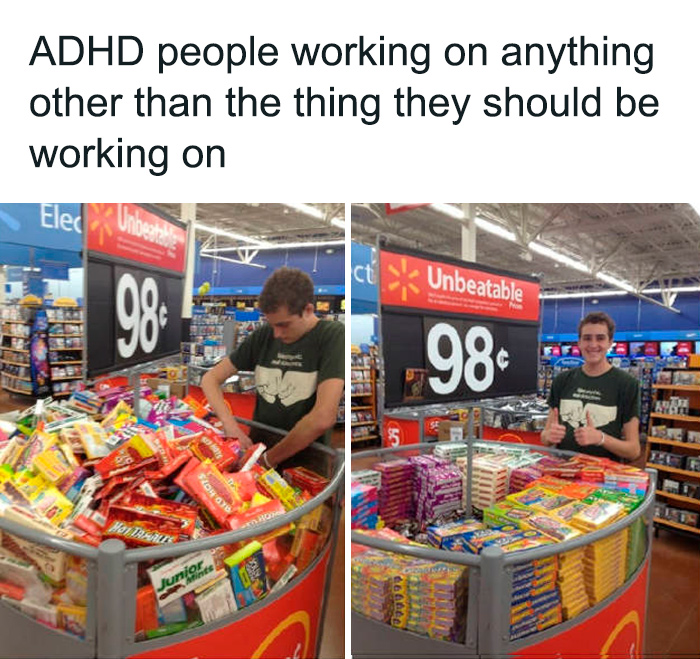
Image credits: adhd_memetherapy
#2
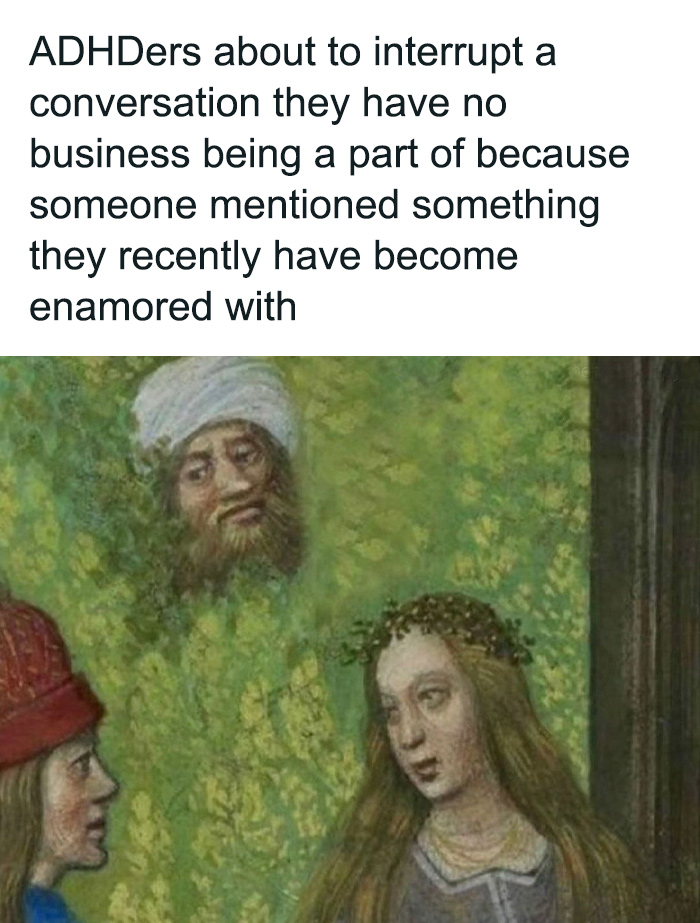
Image credits: adhd_memetherapy
#3
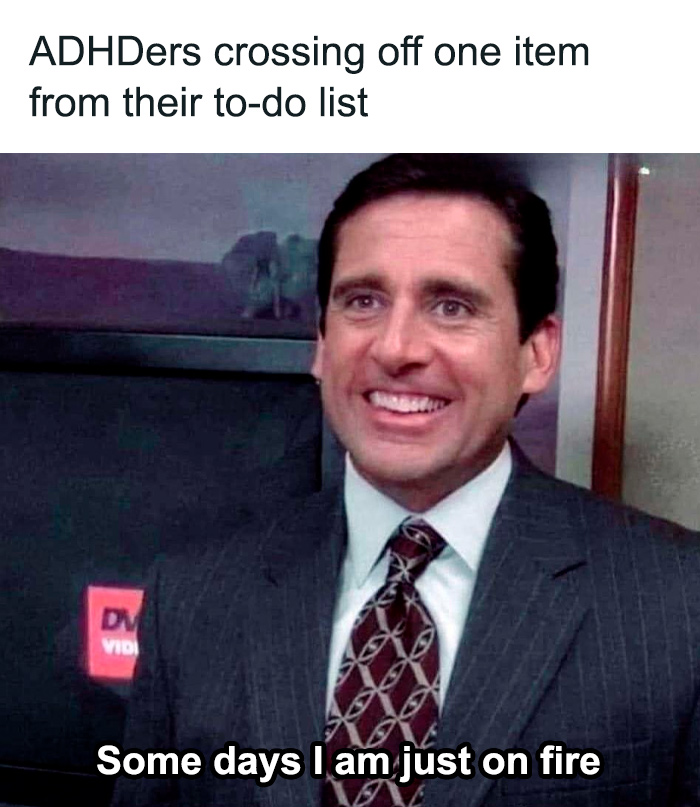
Image credits: adhd_memetherapy
Do people call you forgetful or ditzy? Do they say you don’t listen, you’re always late, impulsive, fidgety or disorganized? Do you struggle to focus, stay organized and finish tasks? Do you often fail to complete that thing you’re meant to do? If you answered yes to a few of these questions, you might have ADHD.
But in order to be diagnosed as an adult, you would have had to have had attention problems or some other symptoms as a child. Even if you didn’t receive a formal diagnosis back then. ADHD is one of the most common mental disorders affecting children. Yet most adults with ADHD didn’t know they had it as kids.
#4
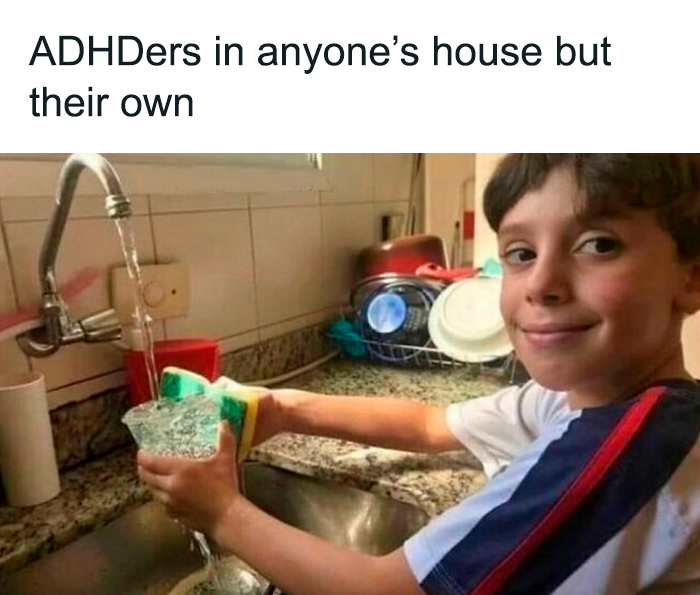
Image credits: adhd_memetherapy
#5
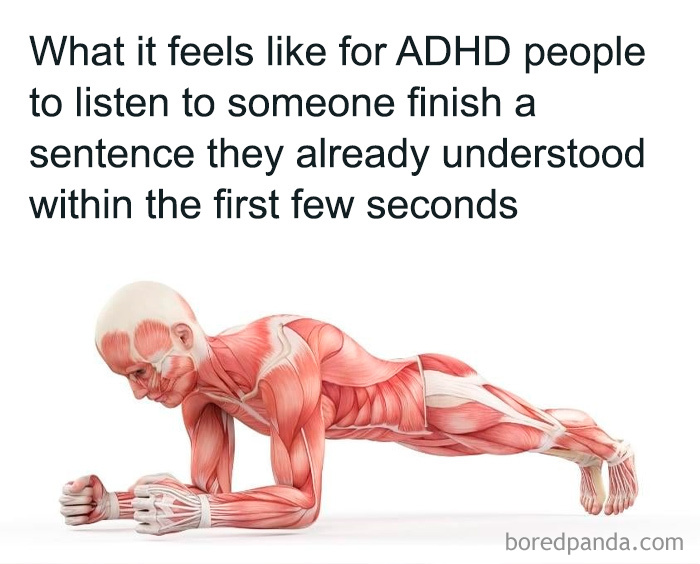
Image credits: adhd_memetherapy
#6
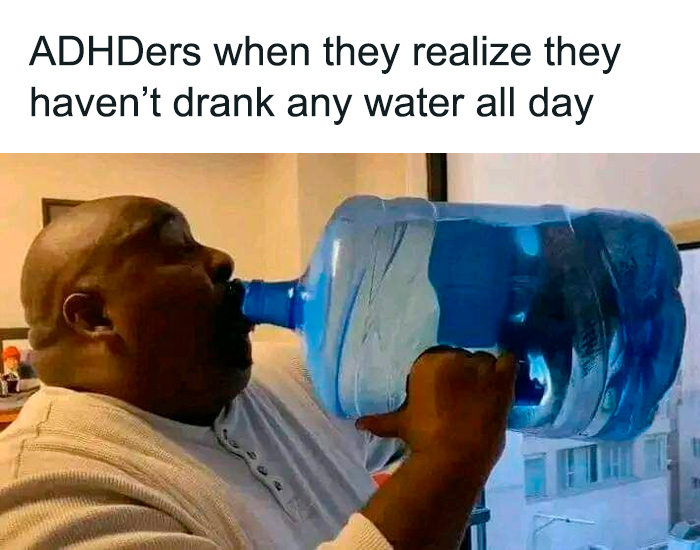
Image credits: adhd_memetherapy
ADHD isn’t always picked up in childhood. Sometimes it’s misread as laziness, depression or anxiety. Other times, it’s totally missed because the child does absolutely fine in school, but struggles later with the demands of college, work or even relationships.
According to WebMD, people who are more hyperactive and impulsive are more likely to get diagnosed in childhood because their behavior was disruptive in school. But when it comes to those who had trouble paying attention and didn’t act out, the ADHD could go undetected.
#7
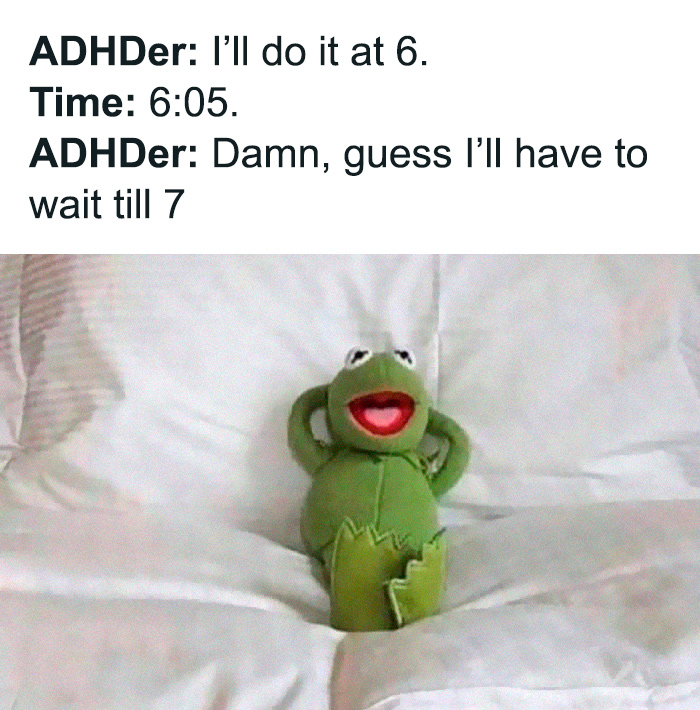
Image credits: adhd_memetherapy
#8
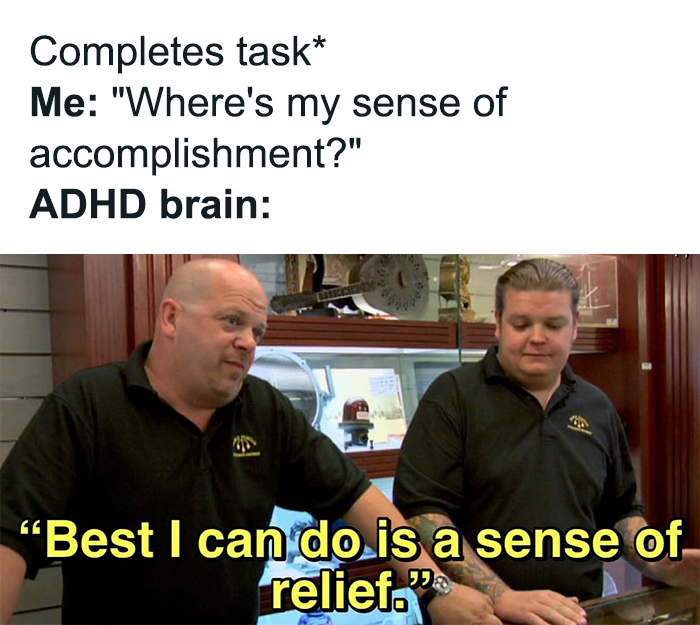
Image credits: adhd_memetherapy
#9
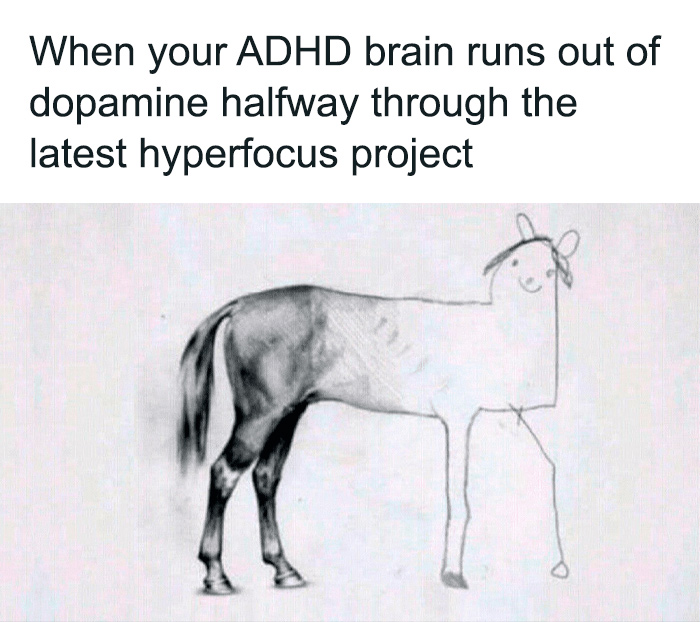
Image credits: adhd_memetherapy
Around 60% of people who had ADHD in childhood will continue to show symptoms when they’re adults. While the symptoms change, most people don’t outgrow it. So if you were diagnosed when you were young, there’s a good chance you still have ADHD as an adult. Forbes reports that more than 366 million adults worldwide have ADHD, while around 129 million children and teens have it.
#10
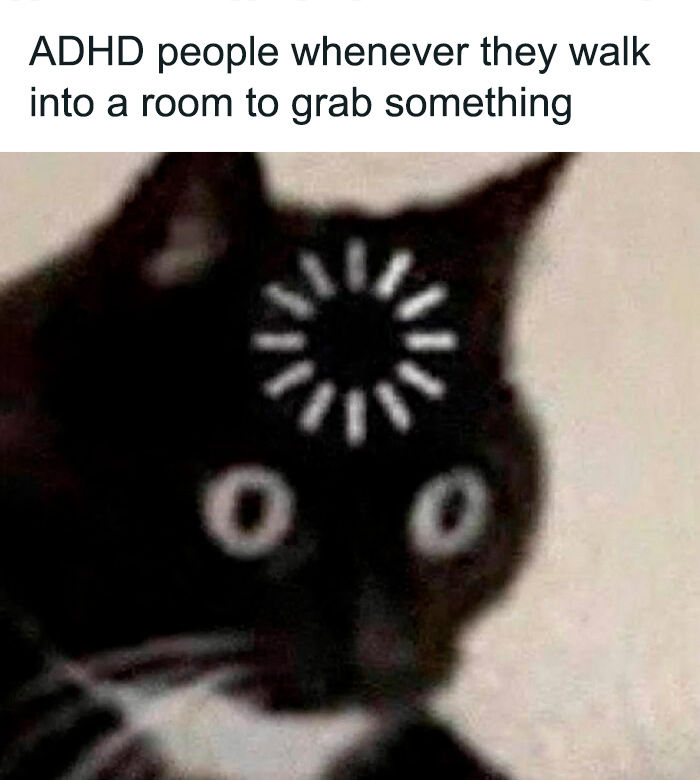
Image credits: adhd_memetherapy
#11
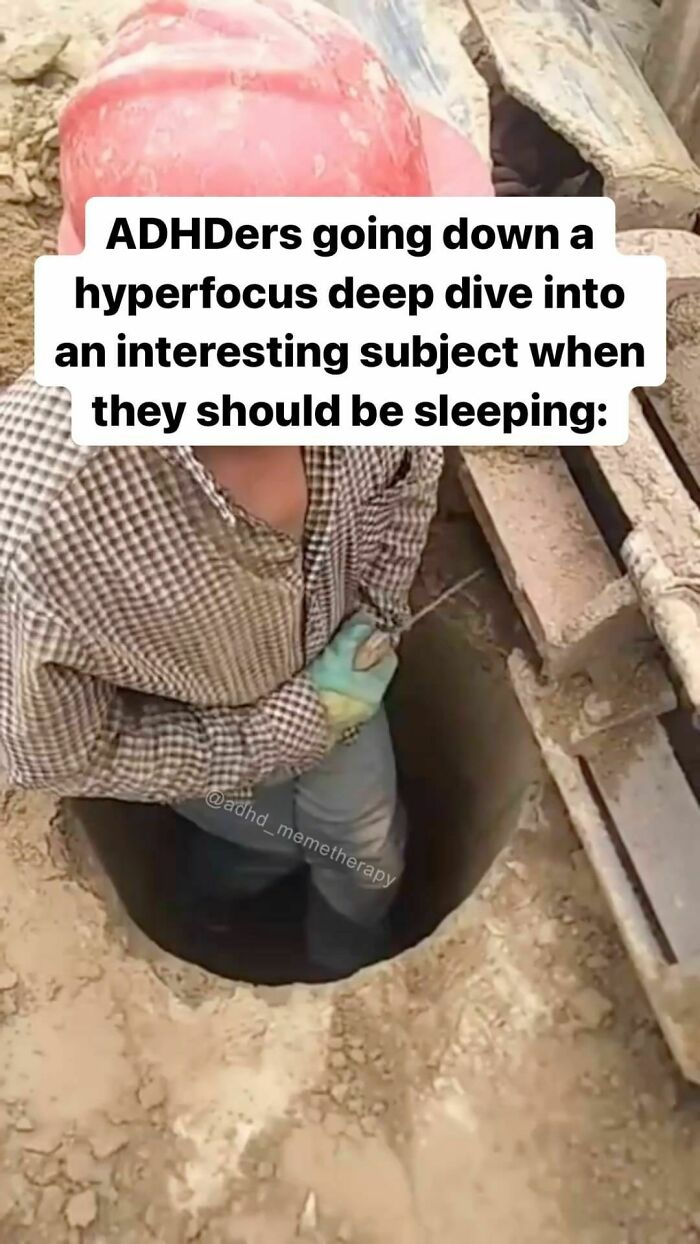
Image credits: adhd_memetherapy
#12
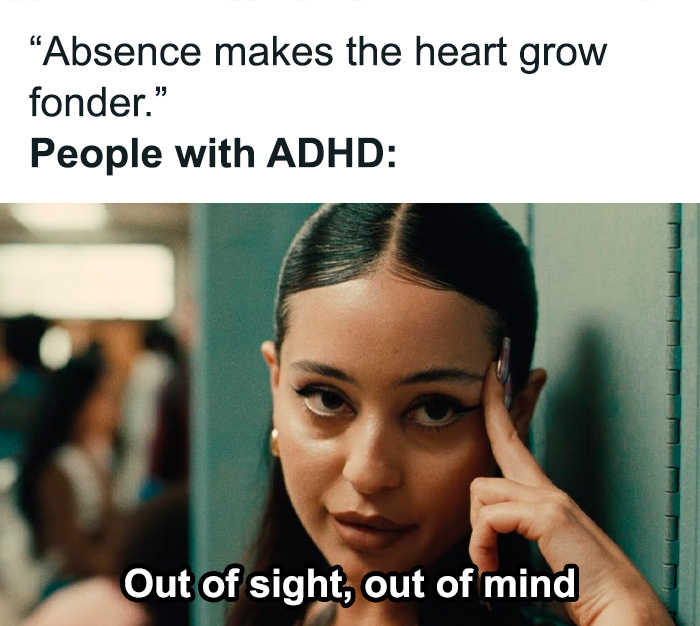
Image credits: adhd_memetherapy
According to Psychiatry.org, “adults with ADHD may experience poor self-worth, sensitivity towards criticism, and increased self-criticism possibly stemming from higher levels of criticism throughout life.” While Mayo Clinic reports that hyperactivity may decrease in adults but they could still struggle with impulsiveness, restlessness and difficulty paying attention may continue.
#13
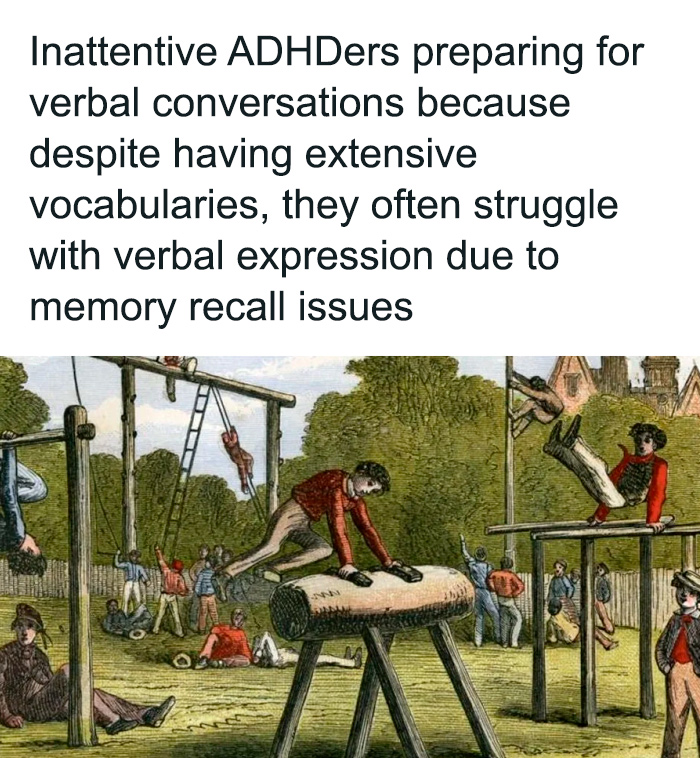
Image credits: adhd_memetherapy
#14
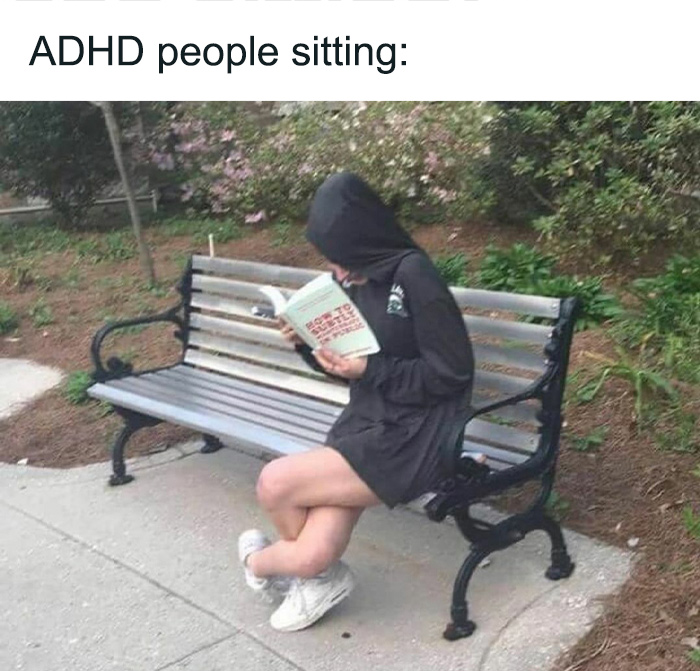
Image credits: adhd_memetherapy
#15
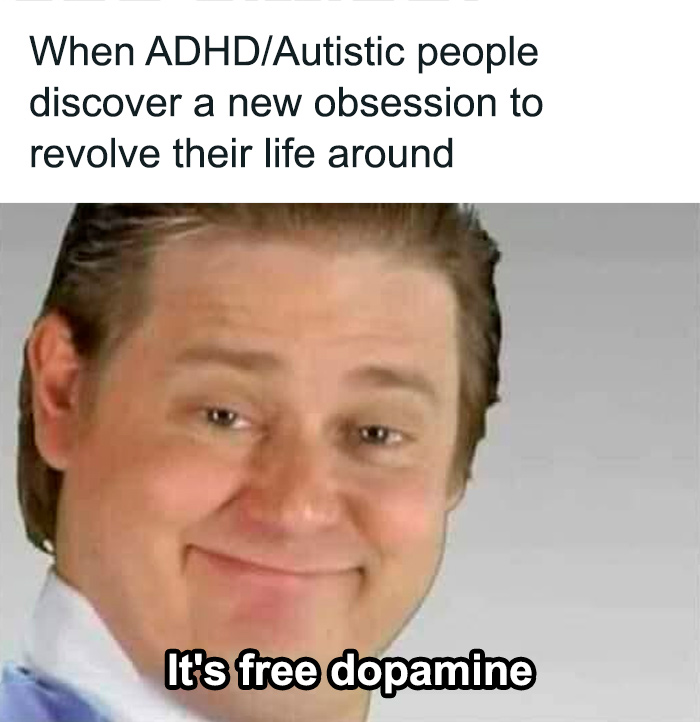
Image credits: adhd_memetherapy
“Many adults with ADHD aren’t aware they have it — they just know that everyday tasks can be a challenge. Adults with ADHD may find it difficult to focus and prioritize, leading to missed deadlines and forgotten meetings or social plans,” reads the site. When in comes to controlling impulses, adults with ADHD could might not being able to wait in line, deal with traffic, or they could have mood swings and outbursts of anger.
#16

Image credits: adhd_memetherapy
#17
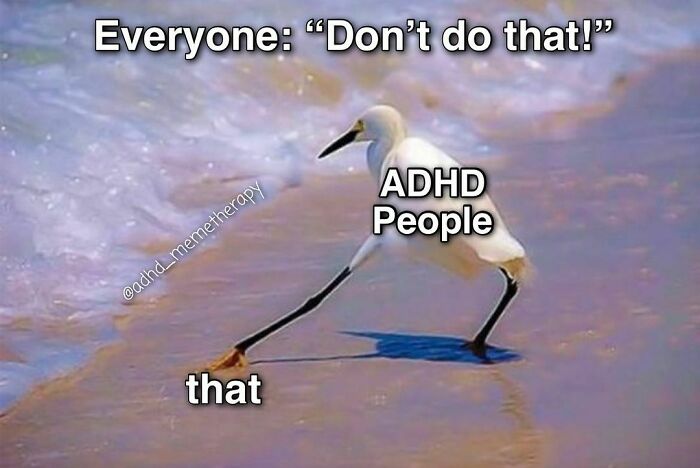
Image credits: adhd_memetherapy
#18
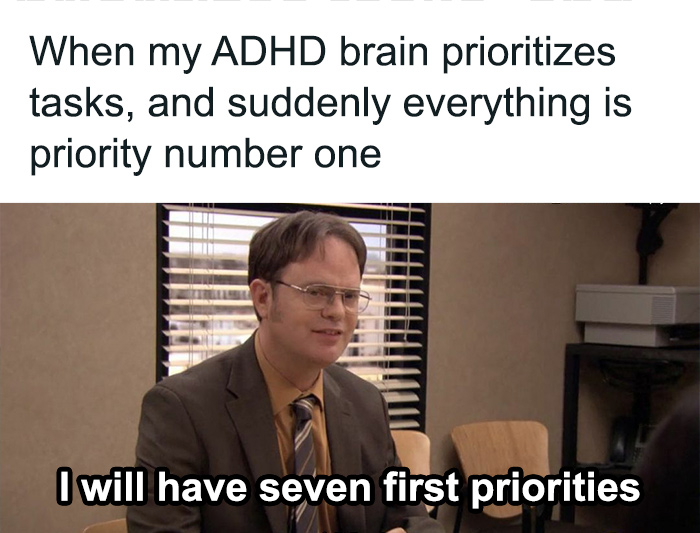
Image credits: adhd_memetherapy
ADHD appears to be more common among boys than girls. But this doesn’t mean it affects boys more. Researchers say girls are often misdiagnosed or not diagnosed at all. And that’s because symptoms differ between the two. According to Psychiatry.org, “Boys tend to present with hyperactivity and other externalizing symptoms whereas girls tend to have inactivity.”
#19
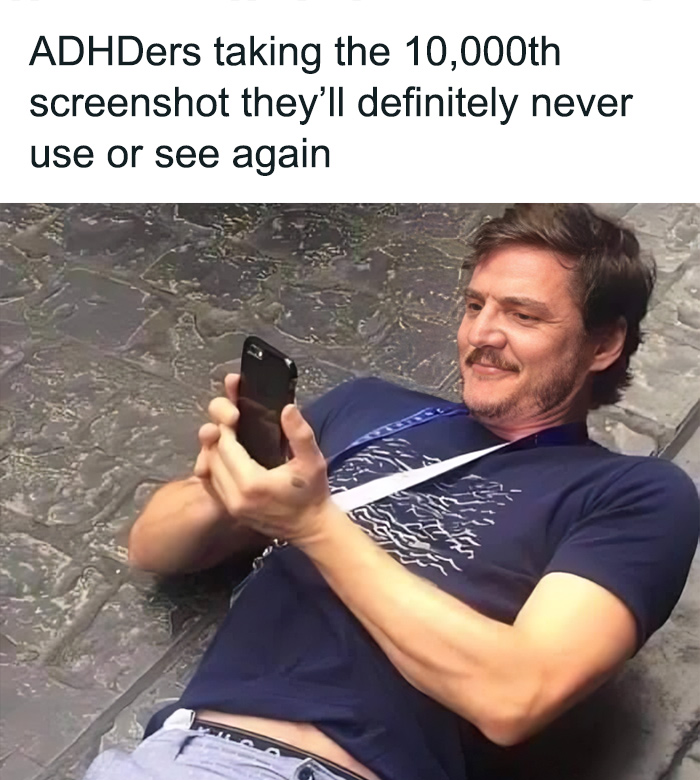
Image credits: adhd_memetherapy
#20
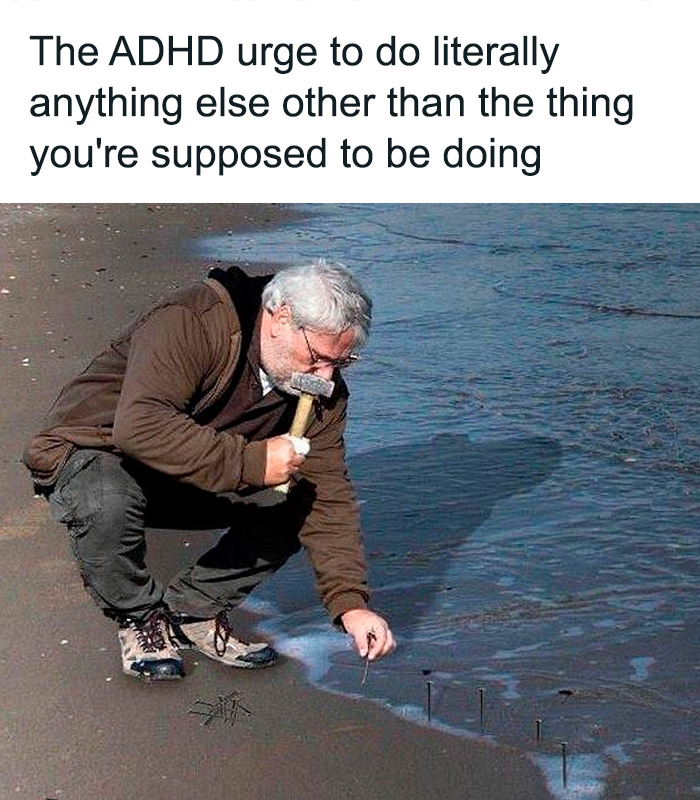
Image credits: adhd_memetherapy
#21
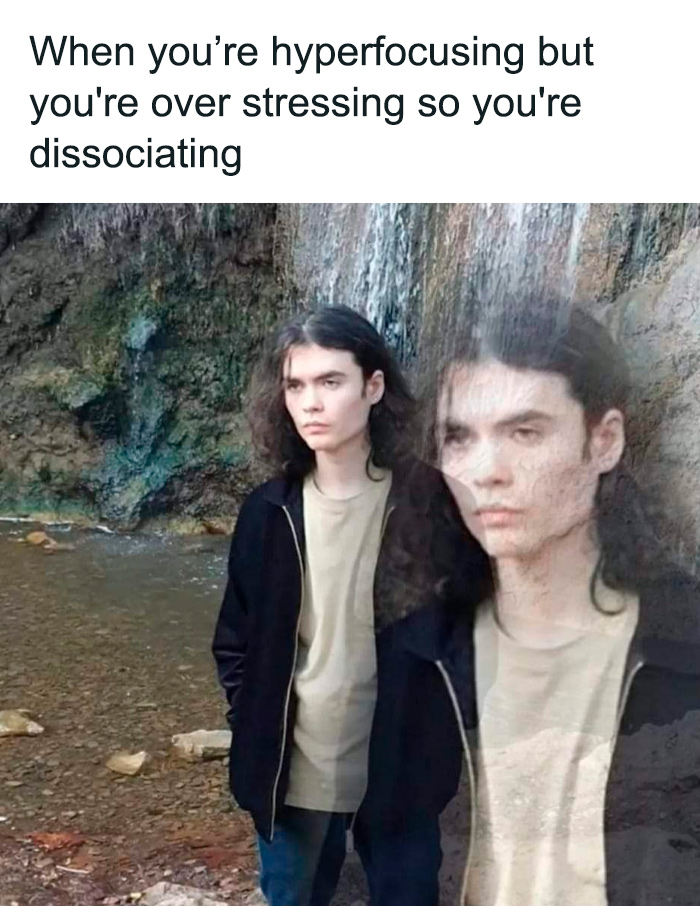
Image credits: adhd_memetherapy
Bored Panda reported in May this year that ADHD diagnoses are skyrocketing in women due to the recognition of gender-specific symptoms. “Women with ADHD often present differently from men with ADHD,” said psychotherapist Terry Matlen Matlen at the time.
“Women tend to internalize their symptoms, i.e., feeling overwhelmed, anxious, depressed, self-medicating with food and/or substances like alcohol/drugs, being attracted to addictive behaviors like excessive shopping, daydreaming, not able to manage household tasks, excessive talking, etc.”
#22
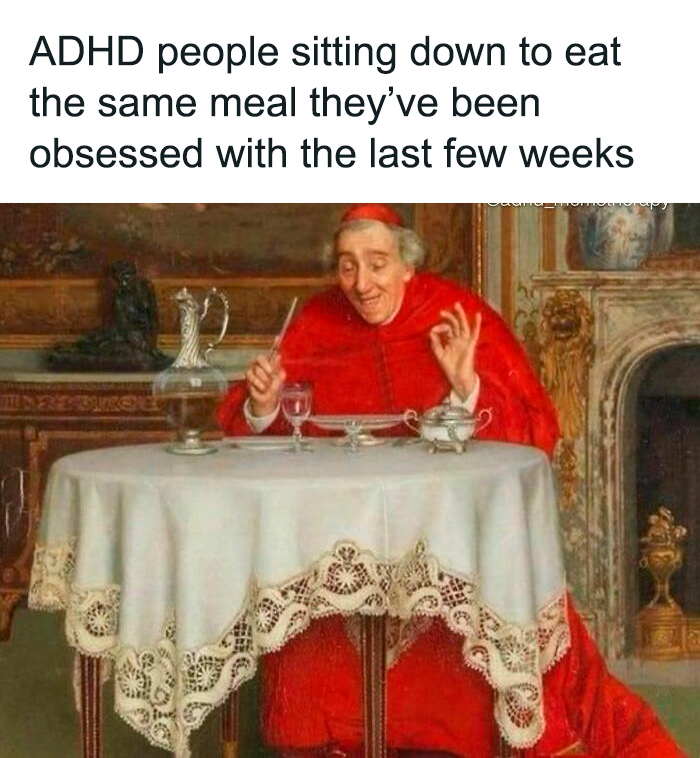
Image credits: adhd_memetherapy
#23
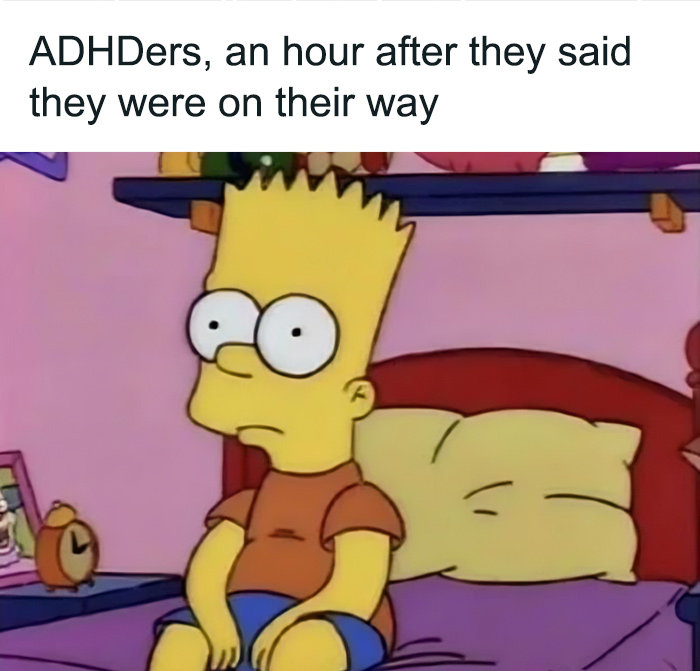
Image credits: adhd_memetherapy
#24
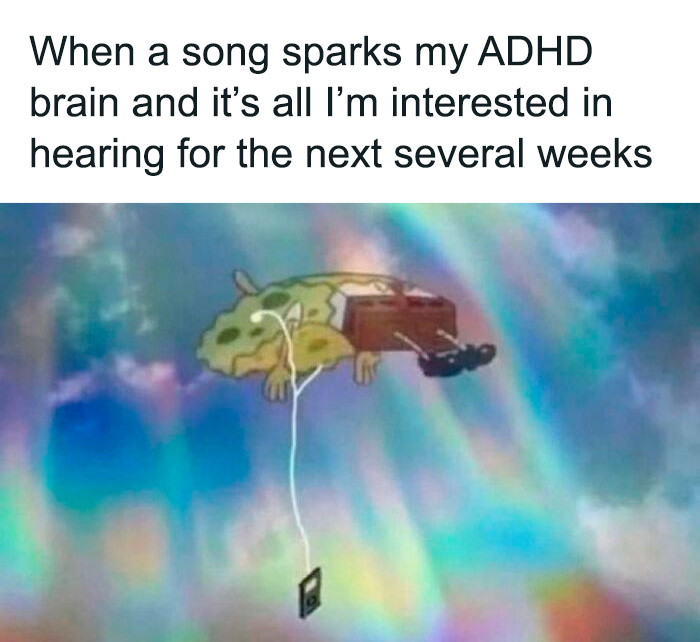
Image credits: adhd_memetherapy
The expert noted that men may exhibit more “external hyperactive/impulsive behaviors like erratic driving or even be attracted to race car sports, skydiving, downhill mountain biking, etc.” Regardless of your gender, you’ll likely have one or two symptoms of ADHD at some point in your life. But this doesn’t mean you have the disorder.
#25
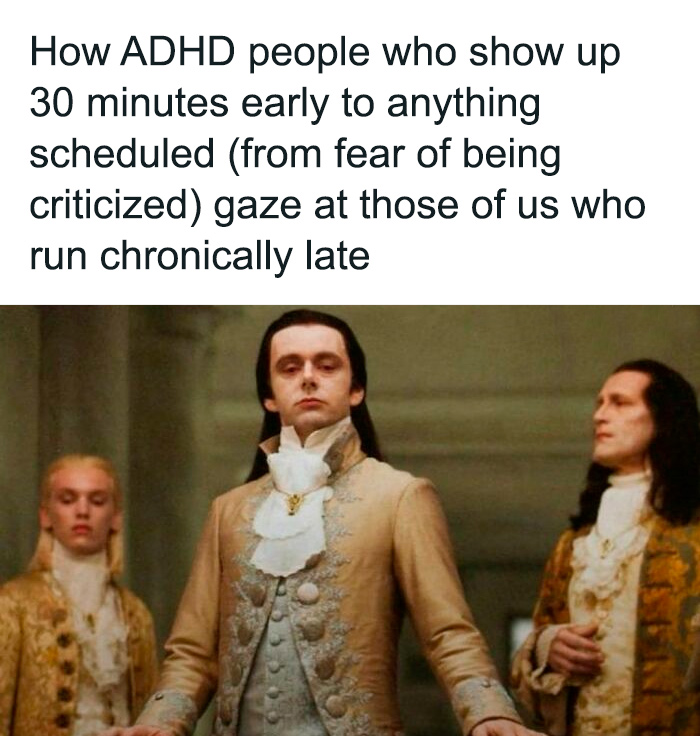
Image credits: adhd_memetherapy
#26
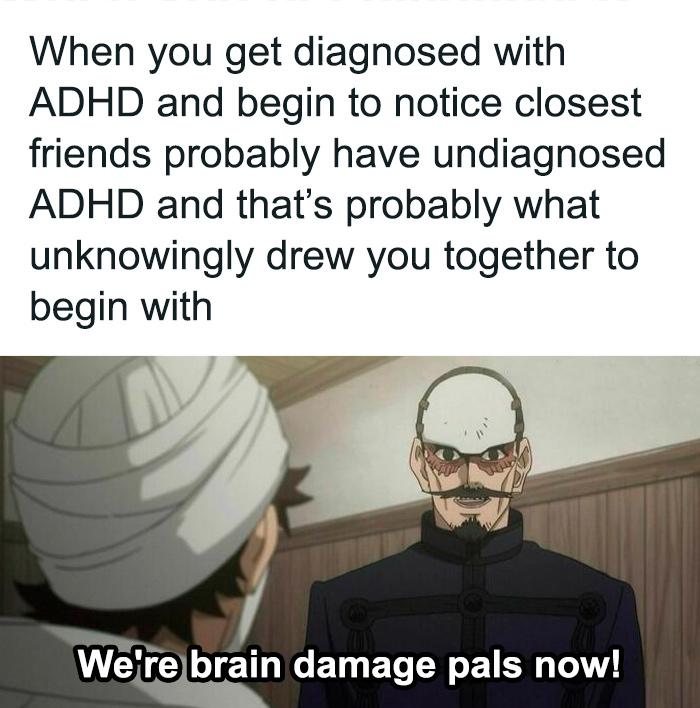
Image credits: adhd_memetherapy
#27
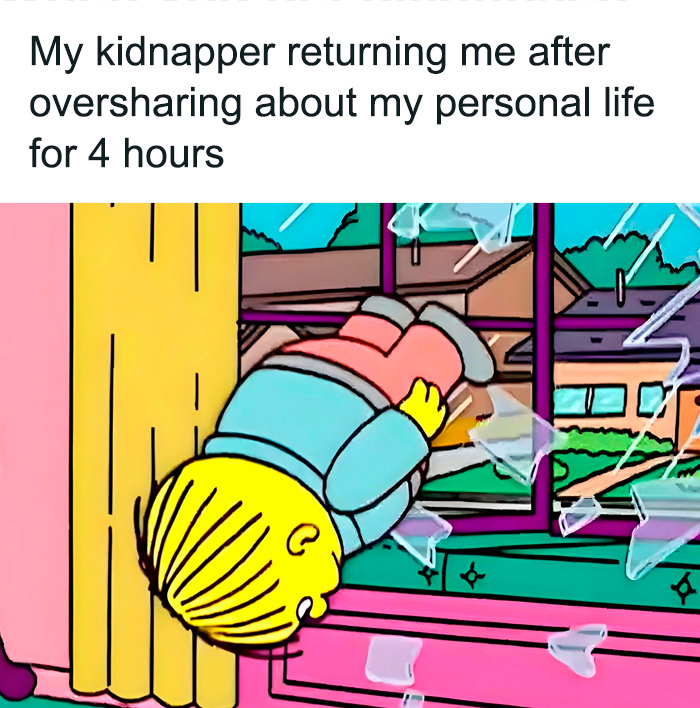
Image credits: adhd_memetherapy
As Mayo Clinic puts it, “if your difficulties are recent or occurred only occasionally in the past, you probably don’t have ADHD. ADHD is diagnosed only when symptoms are severe enough to cause ongoing problems in more than one area of your life.” If you suspect you might have ADHD, or are struggling with any mental health issue, it’s always best to reach out to a qualified professional for help.
#28
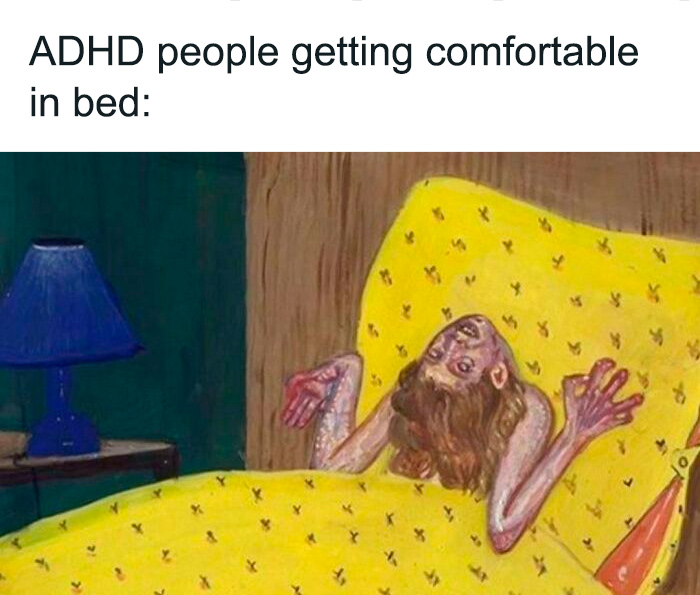
Image credits: adhd_memetherapy
#29
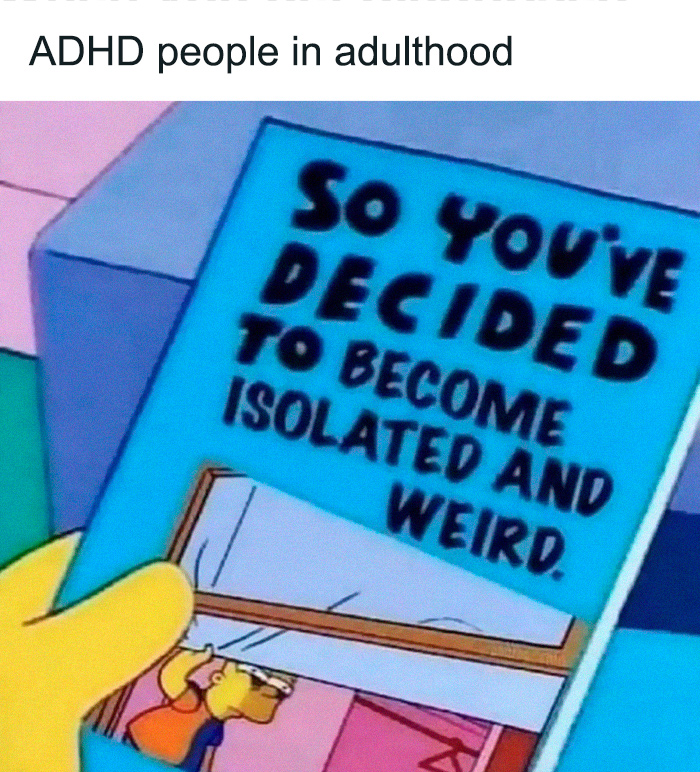
Image credits: adhd_memetherapy
#30
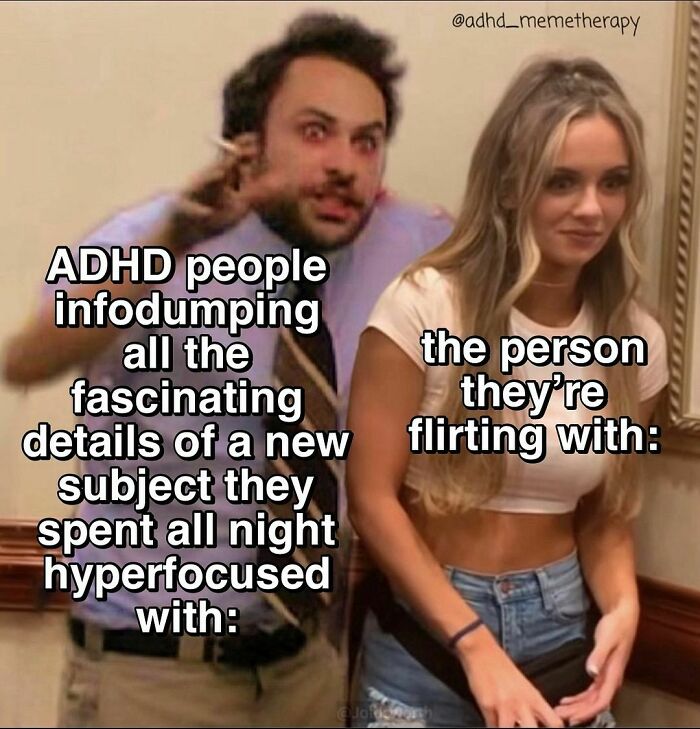
Image credits: adhd_memetherapy
#31
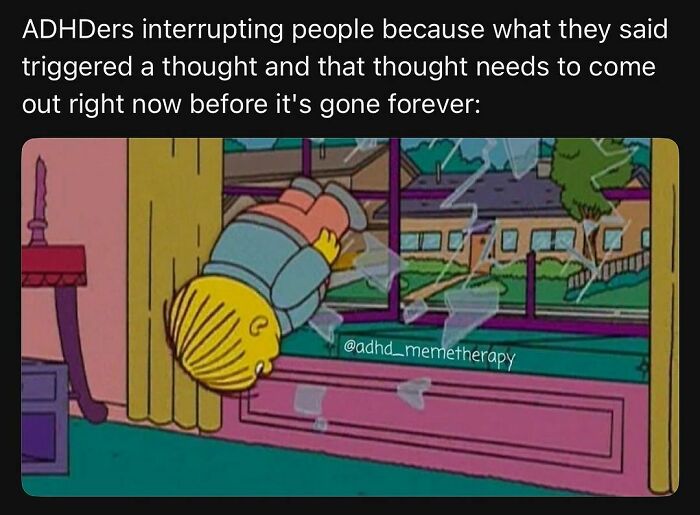
Image credits: adhd_memetherapy
#32
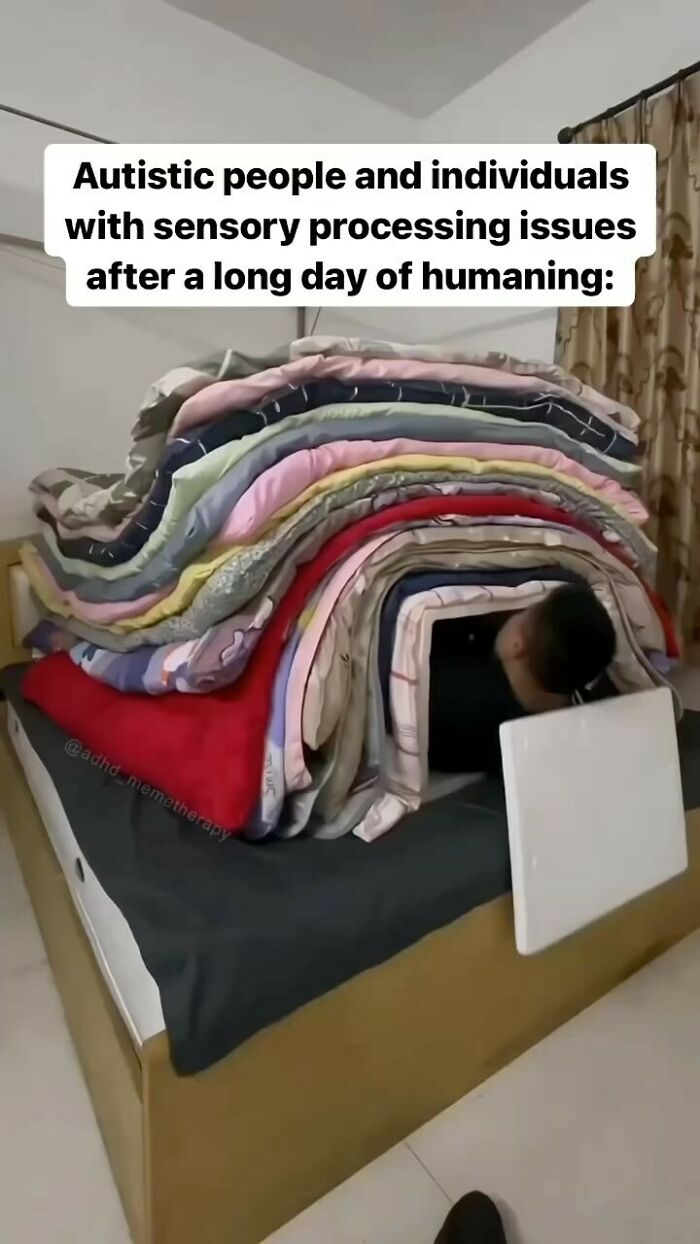
Image credits: adhd_memetherapy
#33
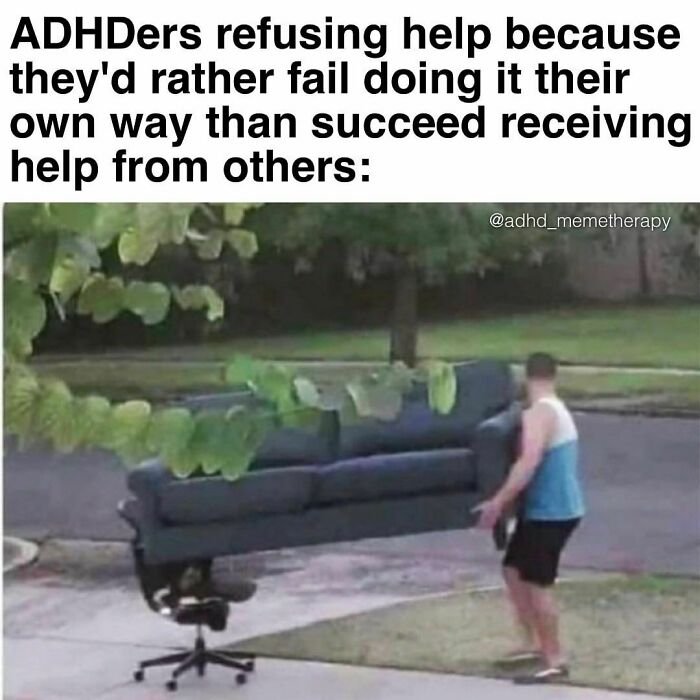
Image credits: adhd_memetherapy
#34
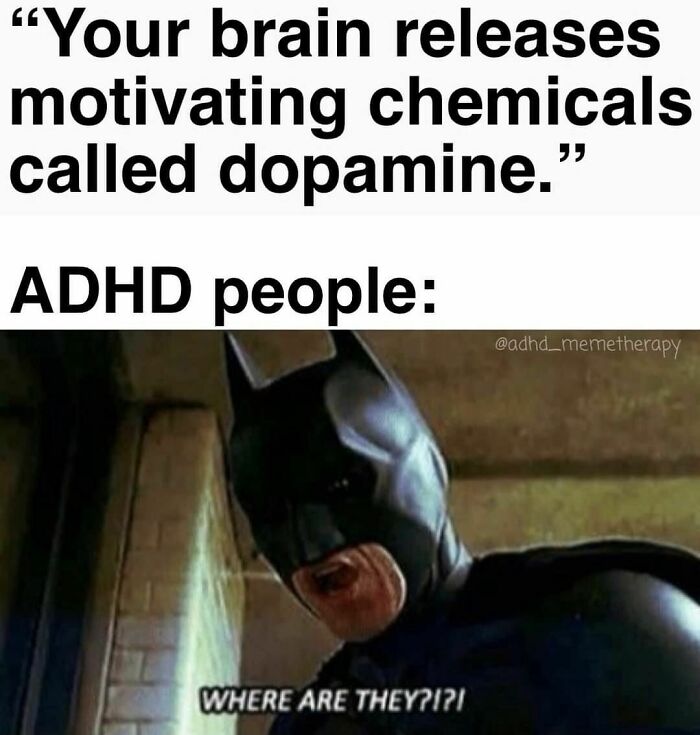
Image credits: adhd_memetherapy
#35
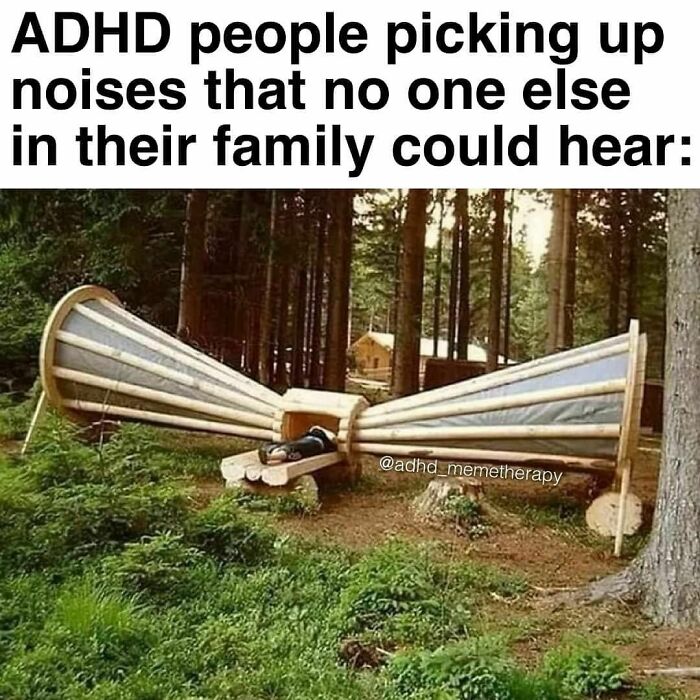
Image credits: adhd_memetherapy
#36
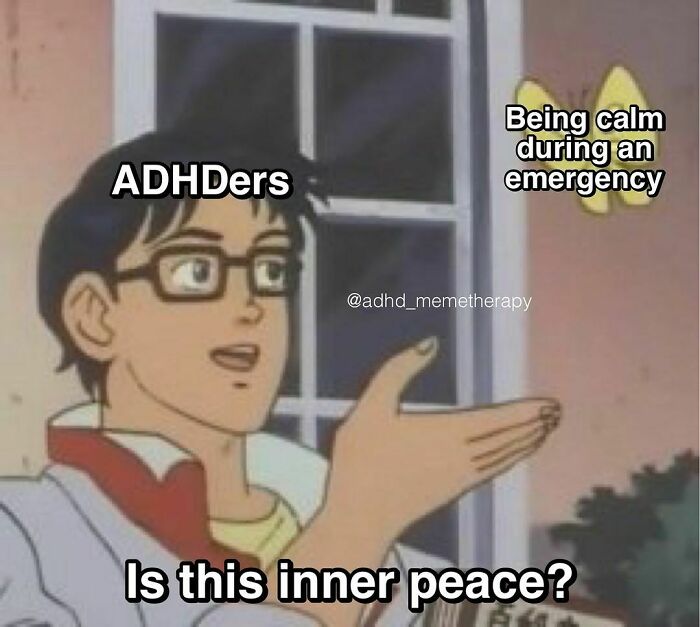
Image credits: adhd_memetherapy
#37
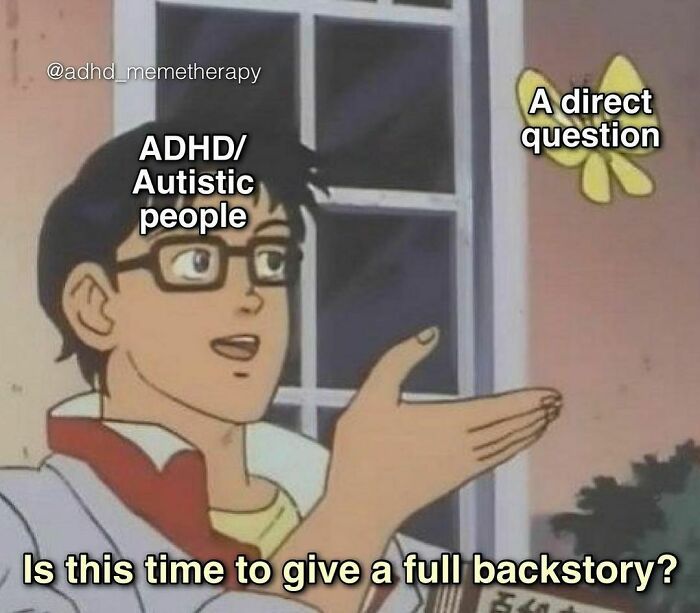
Image credits: adhd_memetherapy
#38
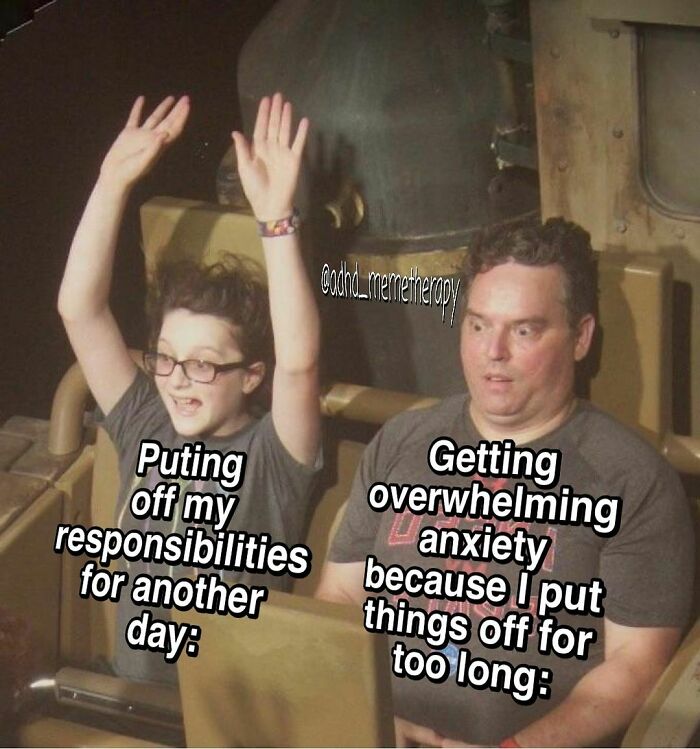
Image credits: adhd_memetherapy
#39
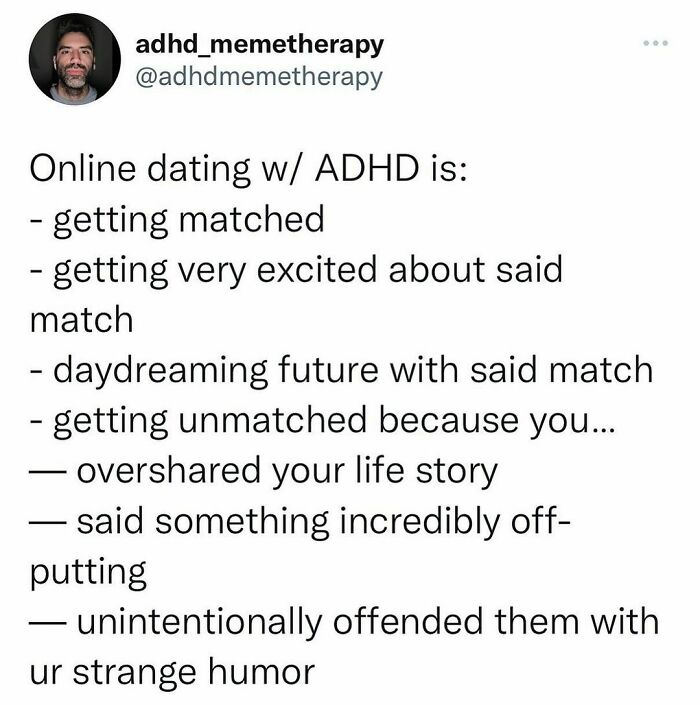
Image credits: adhd_memetherapy
#40
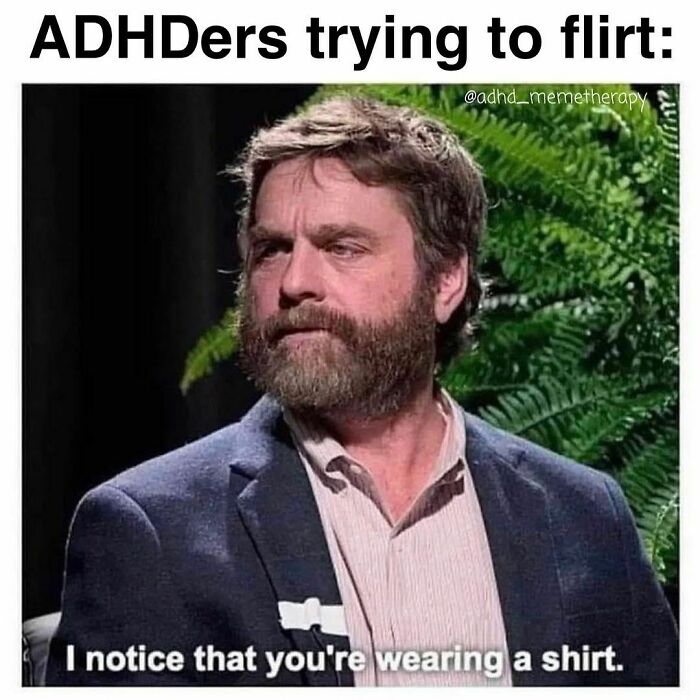
Image credits: adhd_memetherapy
#41
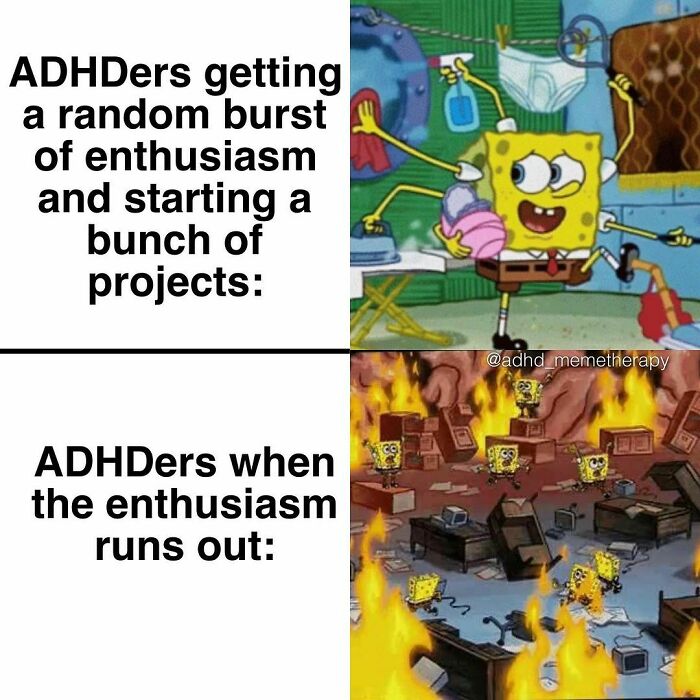
Image credits: adhd_memetherapy
#42
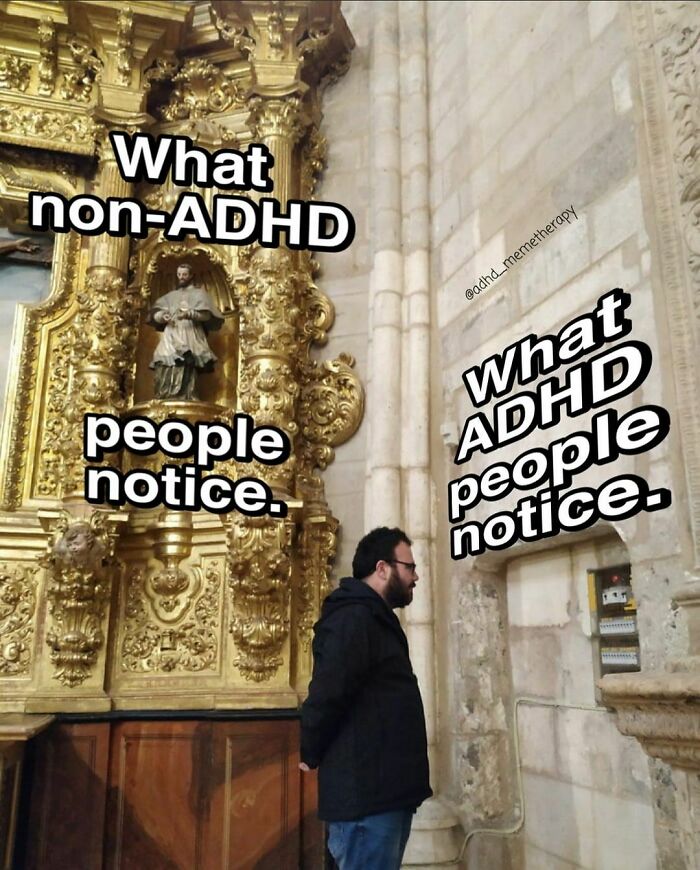
Image credits: adhd_memetherapy
#43
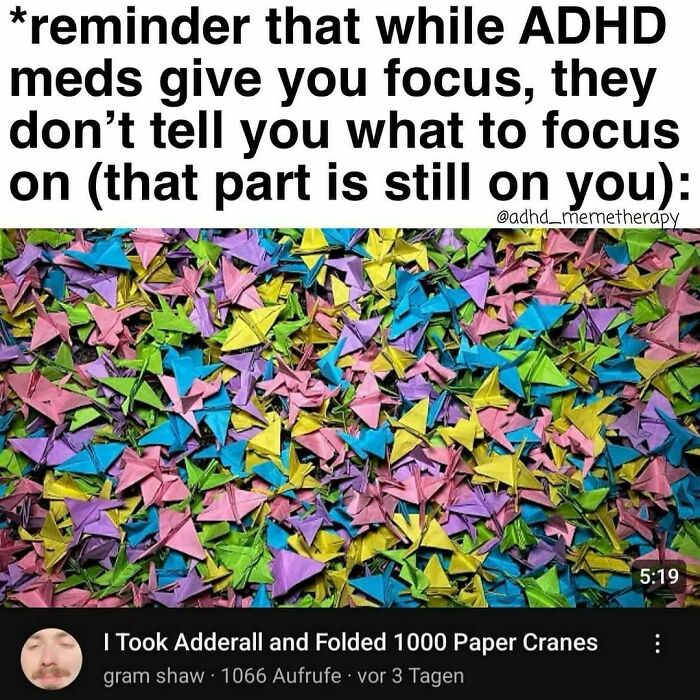
Image credits: adhd_memetherapy
#44
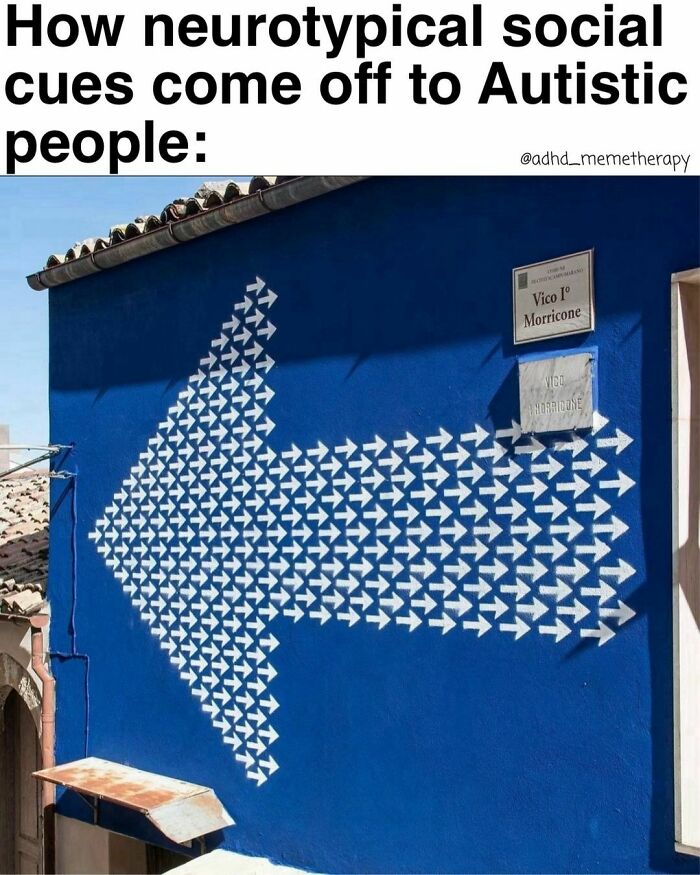
Image credits: adhd_memetherapy
#45
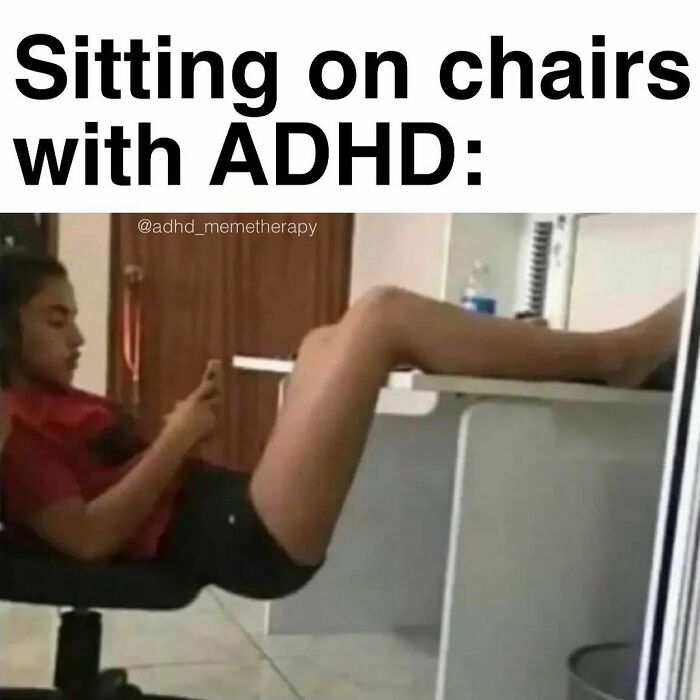
Image credits: adhd_memetherapy
#46
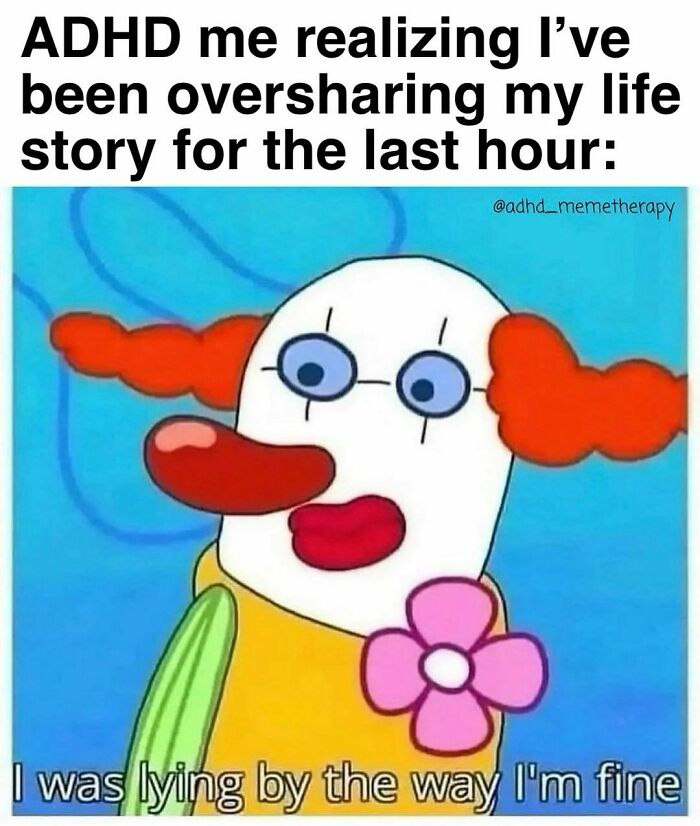
Image credits: adhd_memetherapy
#47
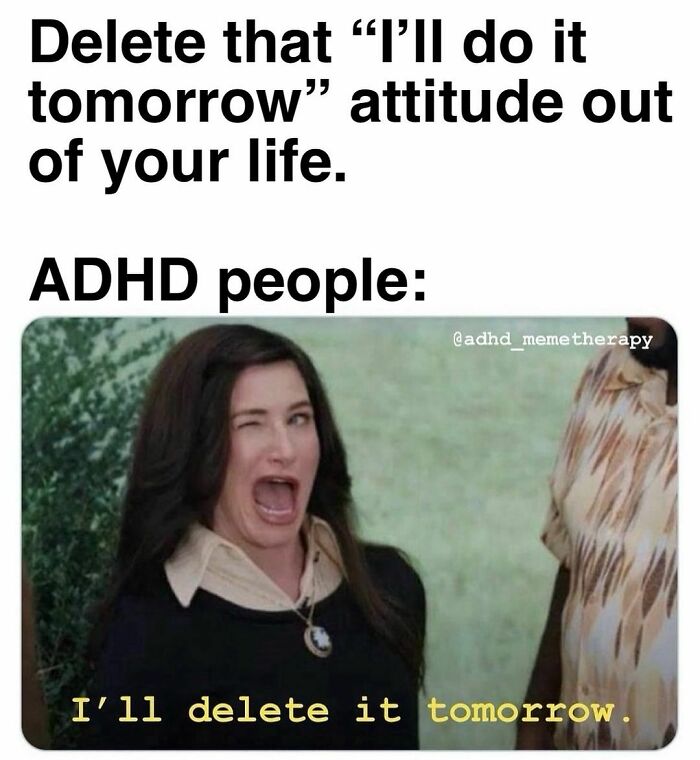
Image credits: adhd_memetherapy
#48

Image credits: adhd_memetherapy
#49
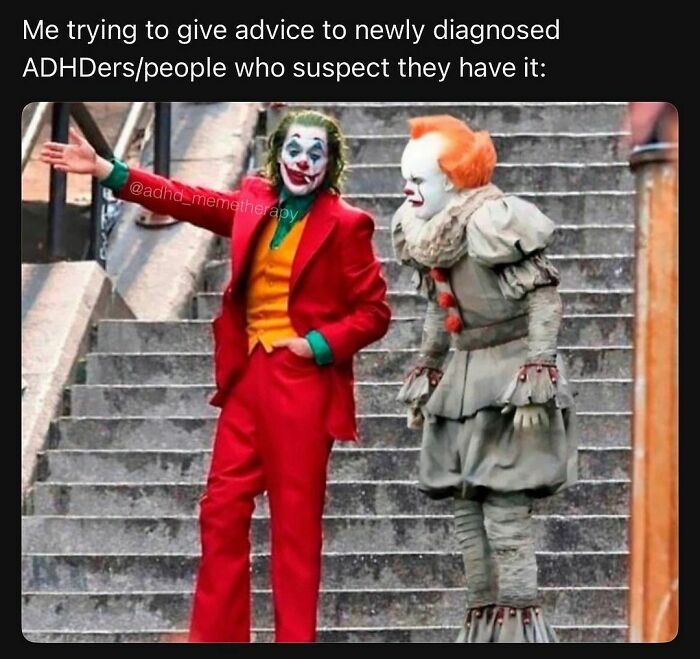
Image credits: adhd_memetherapy
#50
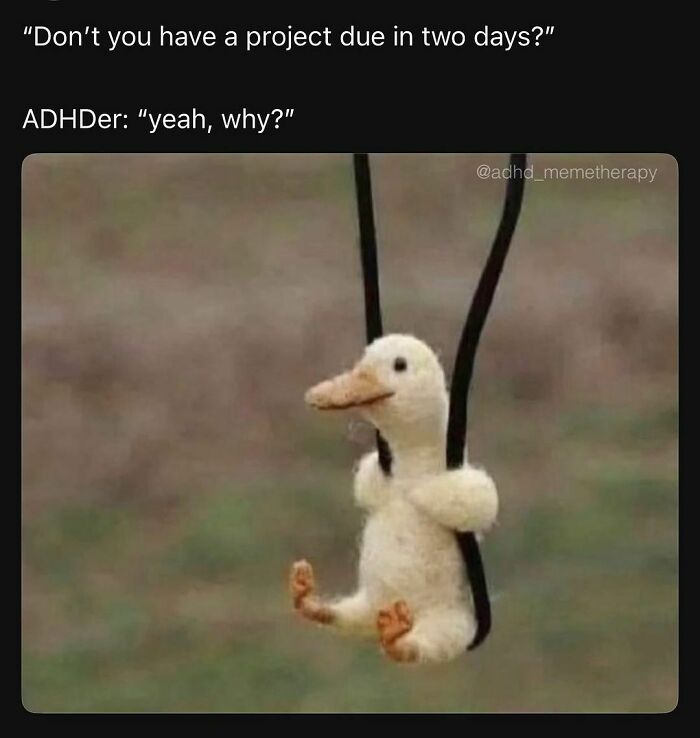
Image credits: adhd_memetherapy
#51
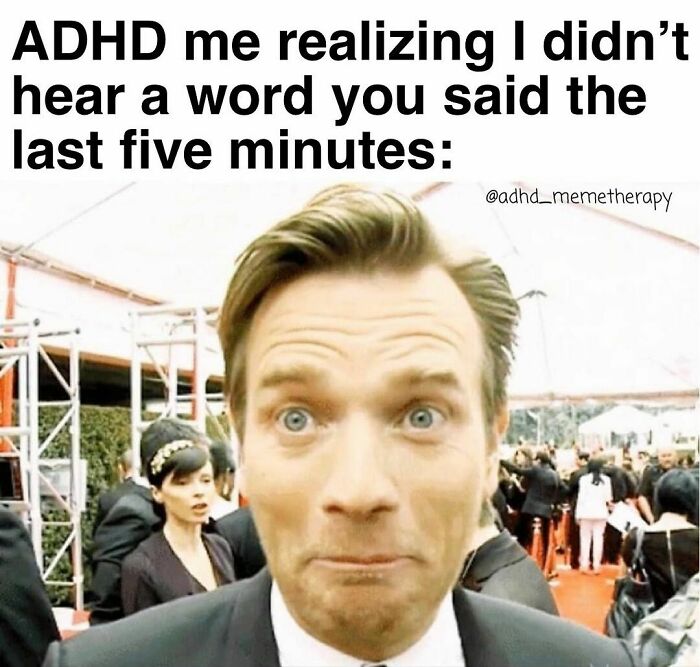
Image credits: adhd_memetherapy
#52
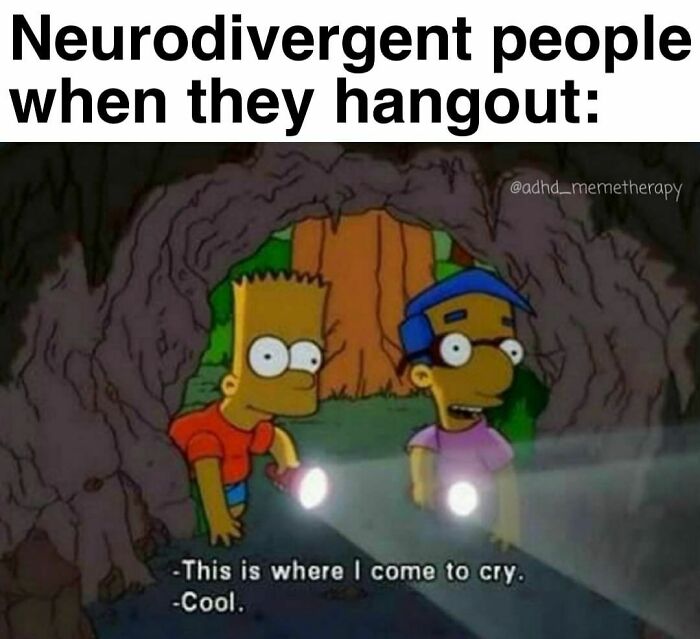
Image credits: adhd_memetherapy
#53
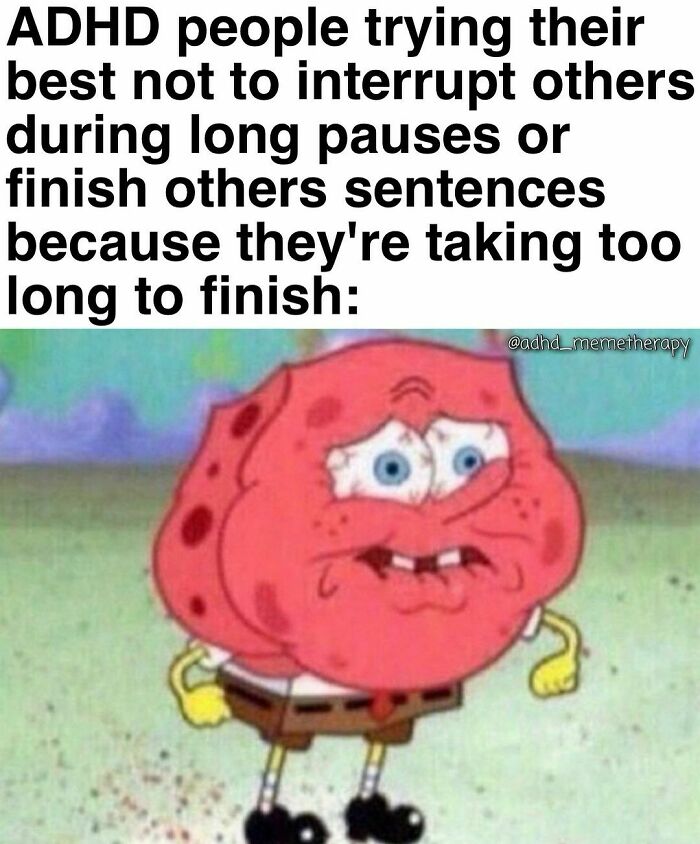
Image credits: adhd_memetherapy
#54
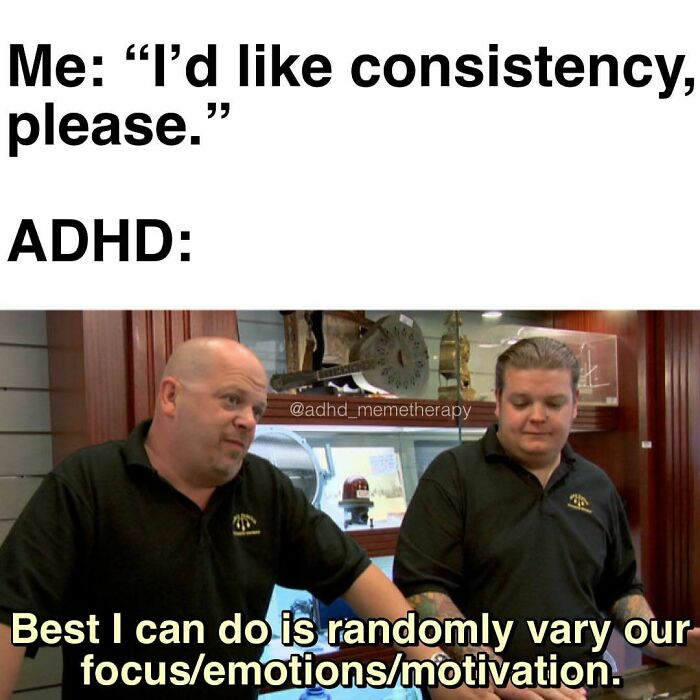
Image credits: adhd_memetherapy
#55
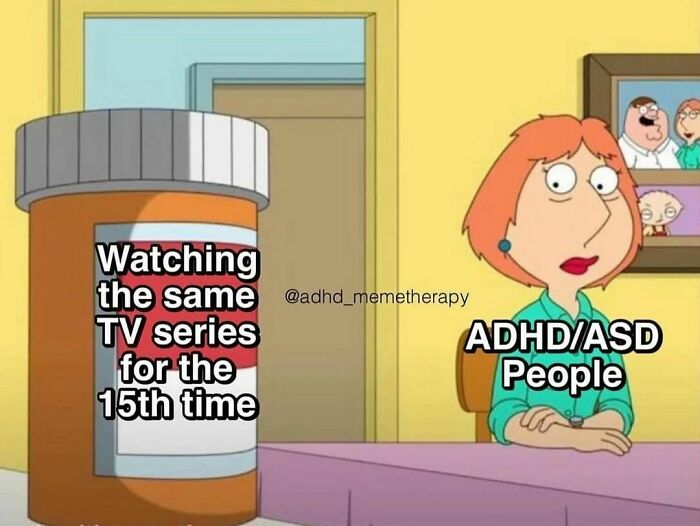
Image credits: adhd_memetherapy
#56
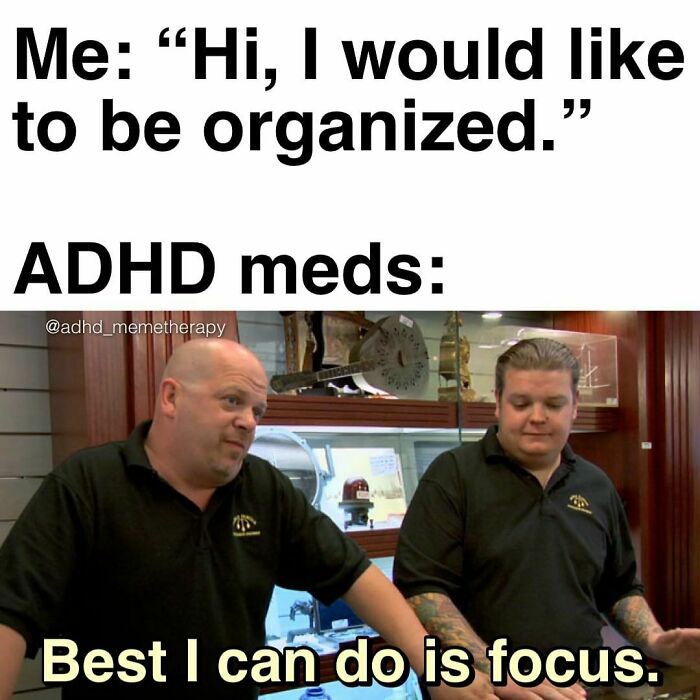
Image credits: adhd_memetherapy
#57
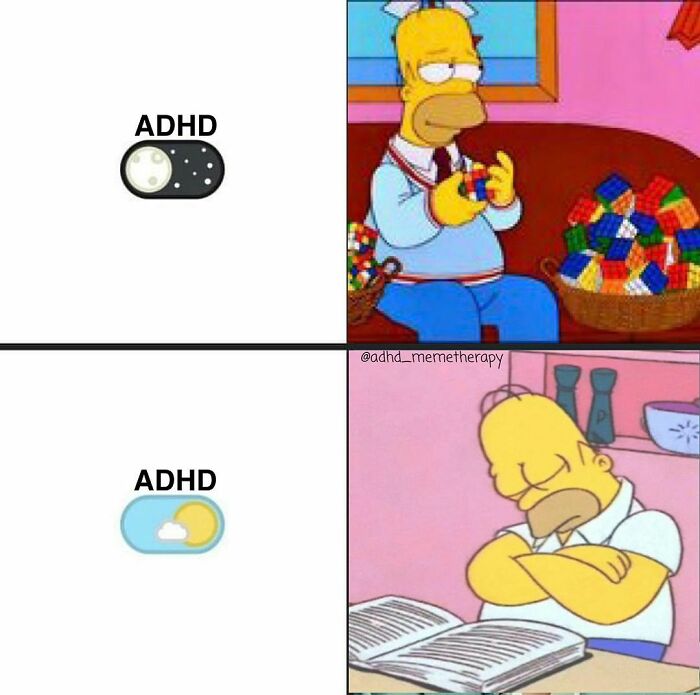
Image credits: adhd_memetherapy
#58
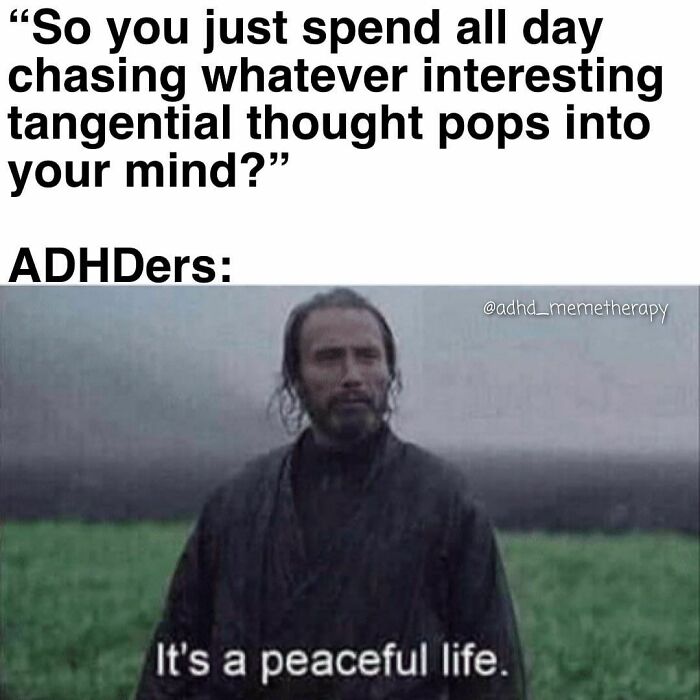
Image credits: adhd_memetherapy
#59
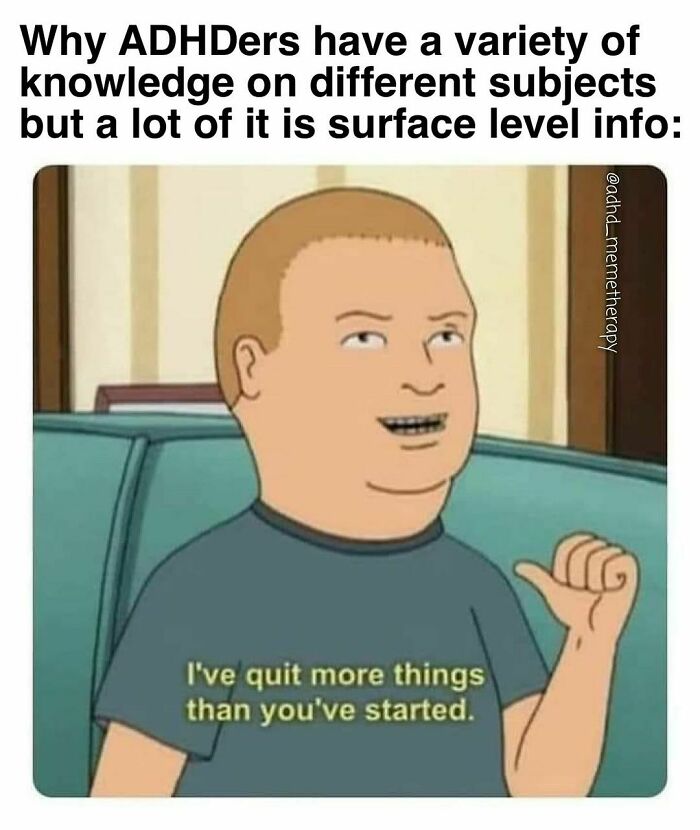
Image credits: adhd_memetherapy
#60
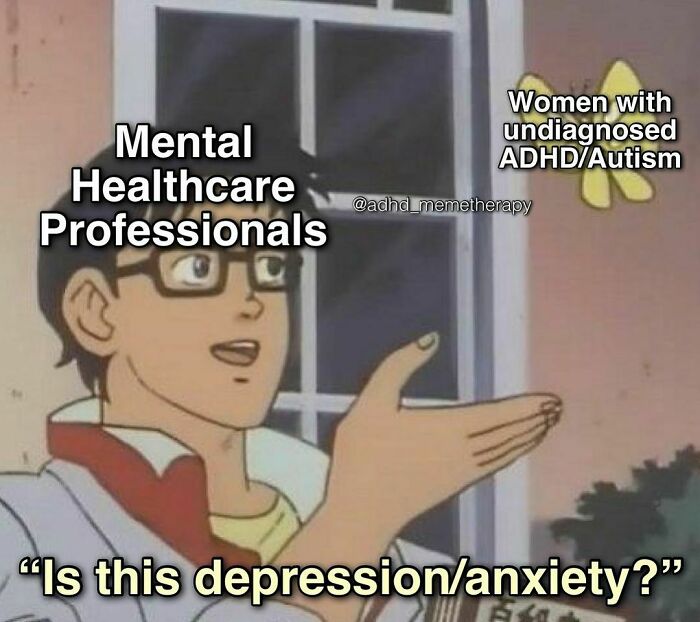
Image credits: adhd_memetherapy
#61
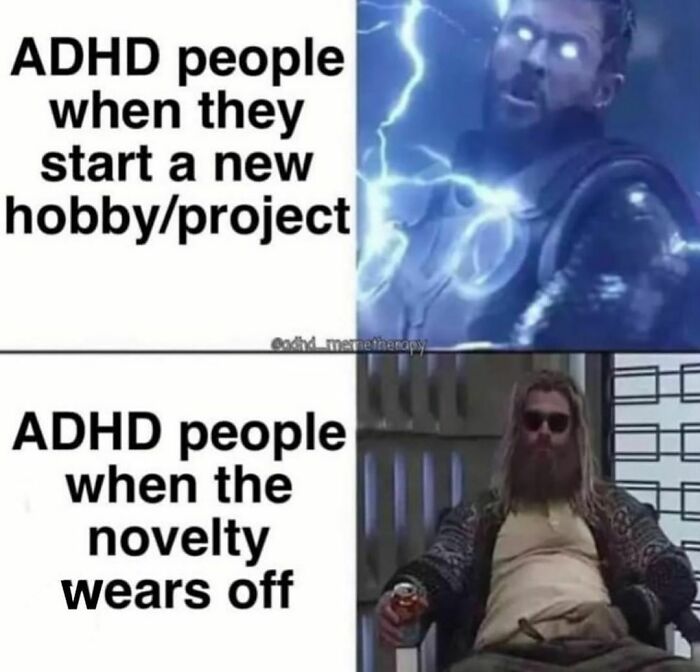
Image credits: adhd_memetherapy
#62
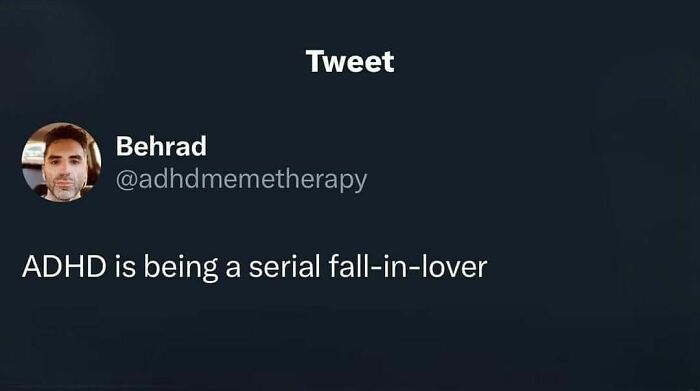
Image credits: adhd_memetherapy
#63
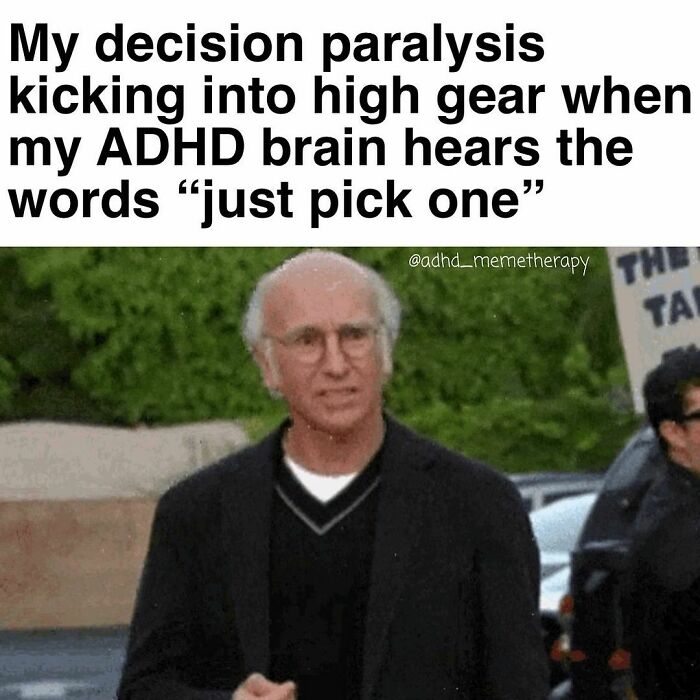
Image credits: adhd_memetherapy
#64
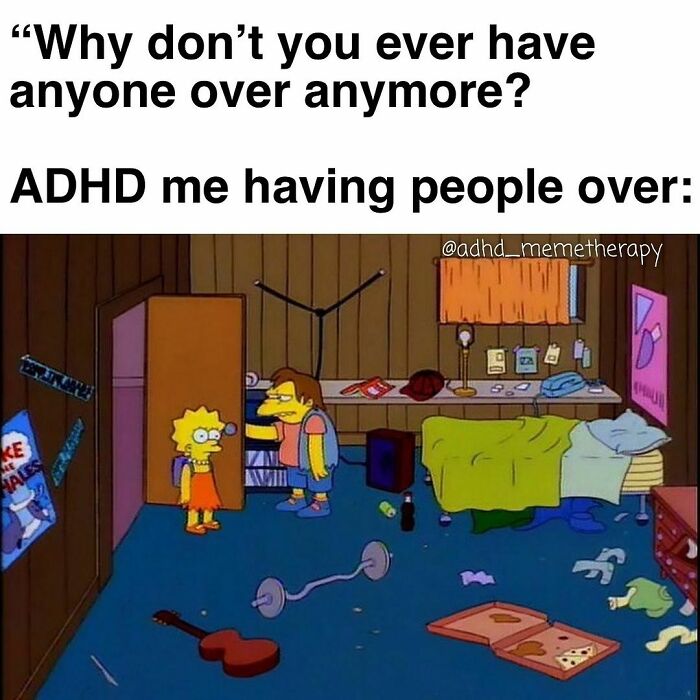
Image credits: adhd_memetherapy
[ad_2]
Source link
